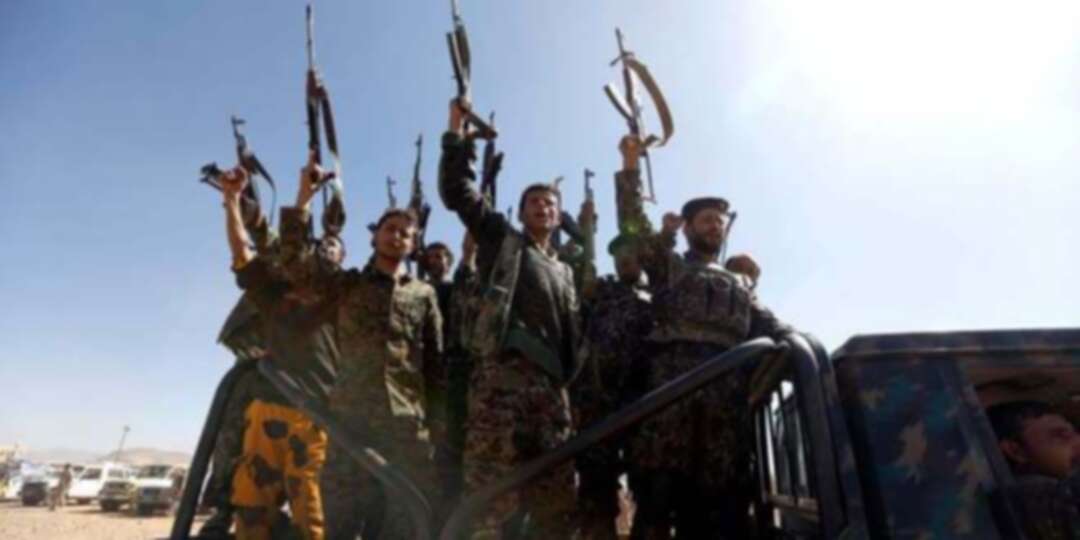-
Rasd coalition: 16 thousand cases of arrest and kidnapping by Al-Houthi in Yemen

The Yemeni Coalition for Monitoring Human Rights Violations, Rasd coalition, documented the arrest and abduction of 16,565 Yemeni civilians, including 368 children, 98 women, and 385 elderly people, from September 2104 to December 2018.
The largest share of detainees was in the capital Sanaa, which reached 2599 detainees, followed by Sanaa governorate by 2223, Taiz governorate with 1425 kidnapped persons. The coalition confirmed that Al-Houthi militias topped the List of arrests and abductions.
This came in a paper presented by a Rasd coalition at a symposium on arbitrary detention in Yemen, the paper also included the report of the Panel of Eminent Experts and the United Nations resolutions related to Yemen, during the 42nd session of the Human Rights Council currently held in Geneva, Switzerland.
The paper discussed the arbitrary arrests carried out by the Al-Houthi militias since their coup against the legitimate authority in September 2014, which affected several of politicians, human rights activists, journalists, women, and children for political, sectarian, religious, and regional reasons.
The paper presented some arbitrary arrests cases by Al-Houthi militias, the latest being the arrest of the journalist Ihab Al-Shawafi, the director of the Yemen International Bank Ahmed Thabet Al-Absi, and the Shari'a auditing officer of the Agricultural Cooperative Credit Bank (CACB), Nasr Al-Salami.
The coalition considered arbitrary detention as one of Yemen's biggest crimes, which constitute real and systematic terrorism against human rights.
Rasd coalition highlighted that the coup militias are abducting and arbitrarily arresting civilian figures from their workplaces, from the main street or their houses just because they suspect them.
they also confirmed that Al-Houthi militias have turned many government buildings, including sports clubs, colleges, and vital headquarters, into centers for arbitrary detention. The number of such places in the capital Sana'a alone reached 30.
You May Also Like
Popular Posts
Caricature
BENEFIT Sponsors BuildHer...
- April 23, 2025
BENEFIT, the Kingdom’s innovator and leading company in Fintech and electronic financial transactions service, has sponsored the BuildHer CityHack 2025 Hackathon, a two-day event spearheaded by the College of Engineering and Technology at the Royal University for Women (RUW).
Aimed at secondary school students, the event brought together a distinguished group of academic professionals and technology experts to mentor and inspire young participants.
More than 100 high school students from across the Kingdom of Bahrain took part in the hackathon, which featured an intensive programme of training workshops and hands-on sessions. These activities were tailored to enhance participants’ critical thinking, collaborative problem-solving, and team-building capabilities, while also encouraging the development of practical and sustainable solutions to contemporary challenges using modern technological tools.
BENEFIT’s Chief Executive Mr. Abdulwahed AlJanahi, commented: “Our support for this educational hackathon reflects our long-term strategic vision to nurture the talents of emerging national youth and empower the next generation of accomplished female leaders in technology. By fostering creativity and innovation, we aim to contribute meaningfully to Bahrain’s comprehensive development goals and align with the aspirations outlined in the Kingdom’s Vision 2030—an ambition in which BENEFIT plays a central role.”
Professor Riyadh Yousif Hamzah, President of the Royal University for Women, commented: “This initiative reflects our commitment to advancing women in STEM fields. We're cultivating a generation of creative, solution-driven female leaders who will drive national development. Our partnership with BENEFIT exemplifies the powerful synergy between academia and private sector in supporting educational innovation.”
Hanan Abdulla Hasan, Senior Manager, PR & Communication at BENEFIT, said: “We are honoured to collaborate with RUW in supporting this remarkable technology-focused event. It highlights our commitment to social responsibility, and our ongoing efforts to enhance the digital and innovation capabilities of young Bahraini women and foster their ability to harness technological tools in the service of a smarter, more sustainable future.”
For his part, Dr. Humam ElAgha, Acting Dean of the College of Engineering and Technology at the University, said: “BuildHer CityHack 2025 embodies our hands-on approach to education. By tackling real-world problems through creative thinking and sustainable solutions, we're preparing women to thrive in the knowledge economy – a cornerstone of the University's vision.”
opinion
Report
ads
Newsletter
Subscribe to our mailing list to get the new updates!






















